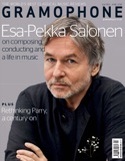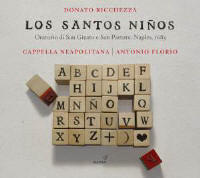Texte paru dans: / Appeared in: |
|
|
Outil de traduction (Très approximatif) |
|
|
Reviewer:
David Vickers Antonio Florio and his enterprising accomplices continue to mine the rich seams of forgotten Neapolitan Baroque composers. Donato Ricchezza (c1650-1722) worked at several of the city’s conservatories and the viceroy’s Real Cappella, and in 1680 was appointed maestro di cappella at Naples’ Girolamini church. The Oratorio di San Giusto e San Pastore (1683) is a story about two Spanish children martyred in about 303‑04 during the persecutions of the early Christians by the emperor Diocletian. Dinko Fabris’s erudite note suggests that the oratorio may have been connected to the departure of the Spanish viceroy, the Marqués of Astorga, whose family claimed lineage from the supposed uncle of the martyrs. The oratorio is essentially an extended trial scene set to fluent music of contrapuntal elegance and appositely varying dramatic moods for all four participants. The two young children apply their impressive scholasticism and theological sureness to steadfastly dispel bullying attempts by an unnamed soldier and the governor to persuade them to renounce their faith; the virtuous wisdom of the boys confounds their irked persecutors. The boys are characterised with dignity and purity by Marta Fumagalli and Federica Pagliuca, whereas the unappeasable belligerence and slyness of their accusers are conveyed astutely by Giuseppe Naviglio and Luca Cervoni. Using single strings with a rich group of plucked continuo, Florio ensures a flowing momentum to the narrative. The parts of the oratorio are both preceded by sinfonias from oratorios by Veneziano (a fellow pupil of Provenzale), and exquisite string ritornellos are also a prominent feature of a profoundly beautiful afterpiece, the mournful passacaglia ‘La pietà di goccia ardente’ from Ricchezza’s oratorio La gara degli elementi, sung plaintively by Fumagalli. |
|




